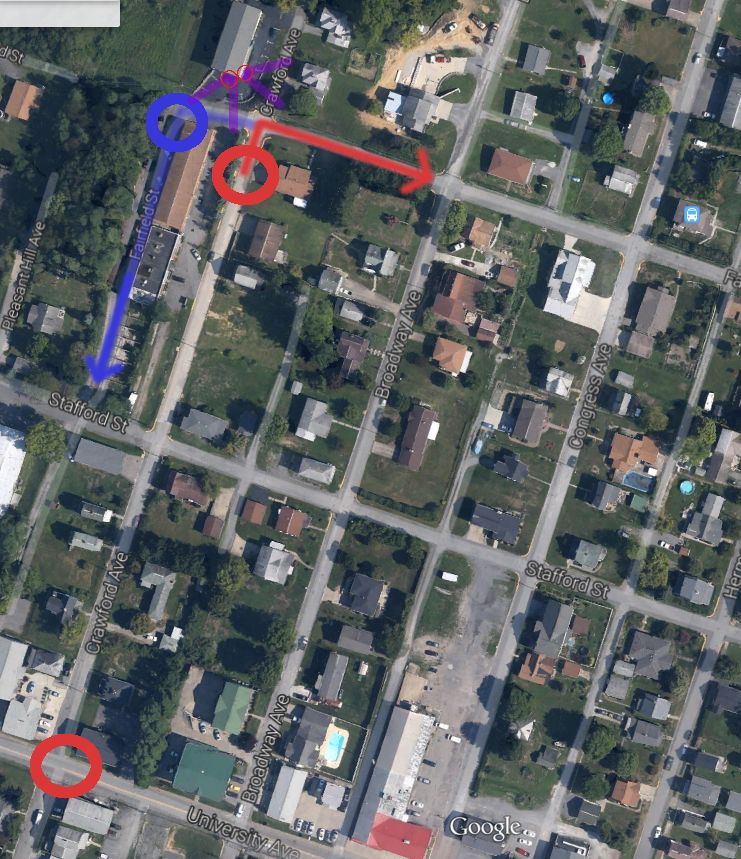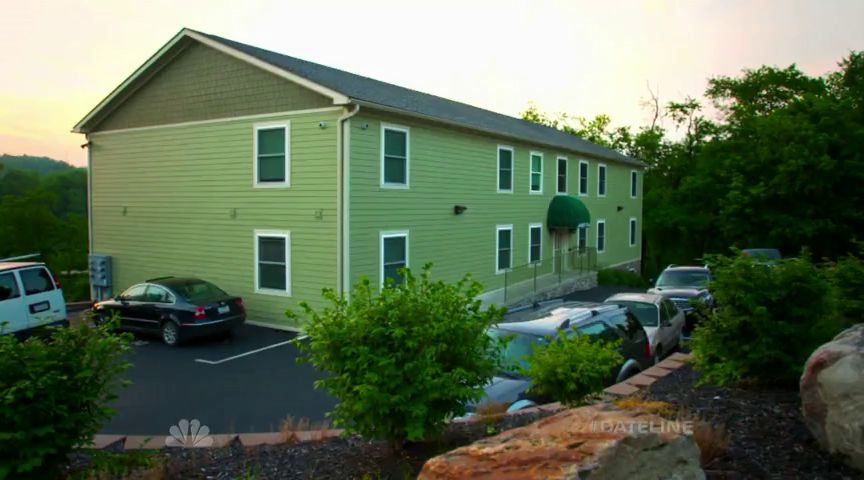This section is for miscellaneous questions related to the murder that pop up every now and then. Unfortunately some of the sources used for this website are sometimes contradictory, and many rumors have been presented as facts. To many questions, there are no certain answers and that's probably the way it's gonna stay.
Did Rachel think she had immunity?Many people were initially under the impression that Rachel Shoaf had negotiated a deal that would make her immune from prosecution for any crime pertaining to Skylar's disappearance. Such a deal would have been made in exchange for Rachel telling the investigators what had happened to Skylar. Immunity would have explained Rachel's freedom between her confession on January 3 and imprisonment on May 1, along with some of her tweets from that period:
"there's so much i regret but im on a new path and i seriously couldn't be happier", 1/28/2013"officially moving to england after college", on 2/24/2013
"my past is past, move the fuck on", 3/8/2013
According to this theory, what drove Rachel to finally plead guilty to second-degree murder despite her immunity was the involvement of Pennsylvania: Even if Rachel had negotiated an immunity with West Virginia, Pennsylvania could still have prosecuted her for the same crime (which took place just across the border in Pennsylvania). This is possible under the American "Dual Sovereignty" Doctrine; two states are considered two sovereigns and thus they can prosecute for the same crime without breaking the double-jeopardy clause (which prevents one sovereign from prosecuting a person twice for the same crime). Some thought Rachel was therefore pressured to negotiate a relatively lenient second-degree murder deal with West Virginia to avoid a potentially much harsher penalty in Pennsylvania. (Some mentioned the death penalty in Pennsylvania, but that would not have been applicable in this case because of Roper v. Simmons.) Ultimately, in both girls' cases Pennsylvania agreed not to prosecute the girls as part of their plea agreements.
However, Rachel's immunity was just speculation; no news article, no offical document, no book makes any mention of Rachel actually having immunity. It's unlikely Rachel's attorneys would have simply missed the fact that Skylar had been killed just across the border rather than in West Virginia. The reason why Rachel was allowed to roam free was that this allowed the prosecution to gather evidence against Shelia without alerting her, and because while Rachel had indeed confessed to the crime, that's not the same as having been found guilty. For a while, all they had were the ramblings of a person who had just been released from a psychiatric hospital. Skylar's remains were not positively identified until mid-March. Rachel was under constant surveillance throughout the period.
What is certain is that both girls had been offered immunity, but this was when it was still believed that Skylar had met an accident, possibly overdosed. According to Pretty Little Killers, the immunity offer was off the table as soon as the prosecution (Marcia Ashdown) knew they were looking at a homicide. It is implied that no deals were signed until Rachel had told them what had happened. But Ashdown herself said in court that "Rachel Shoaf finally agreed, after securing her own benefits, to tell the truth about Skylar's demise." Rachel probably confessed first without having signed any deals but then signed her deal in exchange for testifying against Shelia if necessary and for leading the authorities to Skylar's body.
Why the car on the surveillance video wasn't recognized as Shelia's?
Shelia must have been terrified as the group that had gathered to watch the surveillance video of the Neeses parking lot started rewinding the video, for she would have known that her car is about to be seen on the video picking Skylar up at 12:31 am, thus immediately contradicting what she had said earlier about picking Skylar up at 11:00 pm. She then must have felt incredibly lucky and relieved when no one realized that the car on the video was actually hers.
She later told the police they parked on Crawford Avenue (which is NOT visible on the video) when they first came to pick Skylar up, then turned right to Fairfield Street. Would she have said so if she had not seen the video first? But because she happened to be there when the group first saw the video, she was able to come up with a story that would not contradict what the group thought they saw on the video, even if they had rewinded it all the way back to 11:00 pm. There's a second camera as well, but if it was recording, there'd still be a blind spot between the two which is where Shelia claims she parked her car to pick Skylar up. In all likelihood Shelia was unaware of the video surveillance: If she had been aware, she would have parked out of sight (rather than merely claim she parked out of sight). Why did Shelia first claim she had not seen Skylar that night only to admit a few minutes later that she, Rachel and Skylar had gone joyriding? Maybe she thought she'd sound more credible if she first denied having broken the curfew, as if to appear protective of herself and Skylar?
Why Shelia didn't fight the first-degree murder charge?
Between Shelia's arrest on May 1 2013 and her January 2014 guilty plea, there was a lot of excitement and nervousness about her upcoming trial. Shelia's defense attorney Michael Benninger could poke holes into Rachel's credibility as a key witness by referring to her mental instability and her deal with the prosecution. All the other evidence in the case was circumstantial (which doesn't mean it was bad evidence). So, why not go to trial rather than accept a sentence that may put you in prison for good? After all, both O.J. Simpson and Casey Anthony had been let go by juries in high-profile cases despite both being obviously (in terms of evidence) guilty.
However, Simpson & Anthony cases were gross exceptions to the rule. Jury pools in America are randomly selected and thus you have to accept the possibility that sometimes you end up with a higher proportion of incompetent jurors than what a random sample of a local population should be expected to yield. Such people may have unrealistically high standards for evidence (called the CSI effect), they can't tell the difference between doubt and reasonable doubt, and they expect the prosecution to do all the hard intellectual work for them. Benninger probably realized that expecting such an unlikely outcome in this particular case would be terribly irresponsible (considering what's in his client's best interest), especially given the fact that in this case the prosecution had direct evidence in the form of Rachel's expected testimony. Prosecutions often secure convictions with far less evidence. Even if Shelia never faced the possibility of life without mercy (because of Miller v. Alabama), fifteen years to life is more lenient than what she could have expected had the case gone to trial, and that's why she took the deal.
What happened to the murder weapons and bloody clothes & towels?
According to Rachel, Shelia disposed of them. Shelia had taken the knives from her house kitchen but she obviously didn't return them. (Or if she did, she bleached them so good that the authorities were unable to find any trace of Skylar's blood when they seized all kitchen knives from the Eddy's apartment.) For a while it was speculated that Rachel dumped the knives into Cheat Lake on July 6, when she was boating with Patricia and Kelly Kerns. In Pretty Little Killers, it's mentioned that Rachel tagging along was not planned but that she suddenly insisted on coming on July 6. NewsBall claims a source close to the Eddy family told the same thing about Rachel dumping the knives. If Rachel lied about Shelia disposing of the knives, it could be because she didn't want her mother to know she used her to get rid of crucial evidence. Another possibility that was considered is that Shelia disposed of the bloody clothes by burning them in a barrel next to her father's trailer on Eddys Run Road (or in a nearby barn). None of this evidence has been recovered so far, however.
What kind of evidence the state had against Shelia Eddy?
In addition to Rachel Shoaf's incriminating testimony, which would have been considered direct evidence, the state had plenty of circumstantial evidence against Shelia. Cellphone records would have proved that the girls were in the vicinity of Blacksville that night and not in Morgantown as they had initially claimed. The same records show that Skylar had been texting with the girls when she was, according to the girls' initial story, supposedly joyriding with them around Morgantown. The apartment surveillance video shows Skylar getting into a car very similar to Shelia's, and other security cameras had footage of what could have been the same car heading west only minutes later. (This grainy video footage could never have positively identified the car as Shelia's, however, but Rachel had already identified the car as Shelia's and her testimony would have been corroborated by all the footage.) Skylar's blood was found in the trunk of Shelia's car, and remains of Skylar's vertebrae showed signs that were consistent with stabbing. (This would have made it harder for the defense to argue that Skylar had died accidentally.) The girls' shifting stories about their whereabouts that night would have undermined their credibility. Finally, the location of the body near the Eddy family land would have been telling. It was mentioned earlier that several students and a teacher had overheard the girls discuss killing Skylar but since the prosecution never mentioned this, it's hard to say whether it'd have been brought up in court.
What's "Skylar's Law"?
Since Skylar was seen getting into Shelia's then unknown vehicle voluntarily, the authorities (WV State Police) refused to issue an AMBER Alert, which is issued in case a child is abducted. According to West Virginia law, a missing child was considered a runaway unless proven otherwise. Skylar's Law sought to reverse the burden of proof: A missing child is considered a runaway only if proven as such. The bill was sponsored by Delegate1 Charlene Marshall of Monongalia County. Skylar's father spoke on behalf of the bill before the Legislative Committee, even if he (but not the public) was aware of Skylar's fate by then. Both chambers of the State Legislature in Charleston voted unanimously in favor of the bill in April 2013, and Governor Earl Ray Tomblin signed the bill into law in May 2013. Of course, even if such a law had been in place when Skylar was technically kidnapped (lured out of her home on false pretense), it could not have saved her life. However, it might have hastened the investigation and, more importantly, may save someone else's life one day.
1 West Virginia refers to their lower house as the House of Delegates rather than as the House of Representatives.


